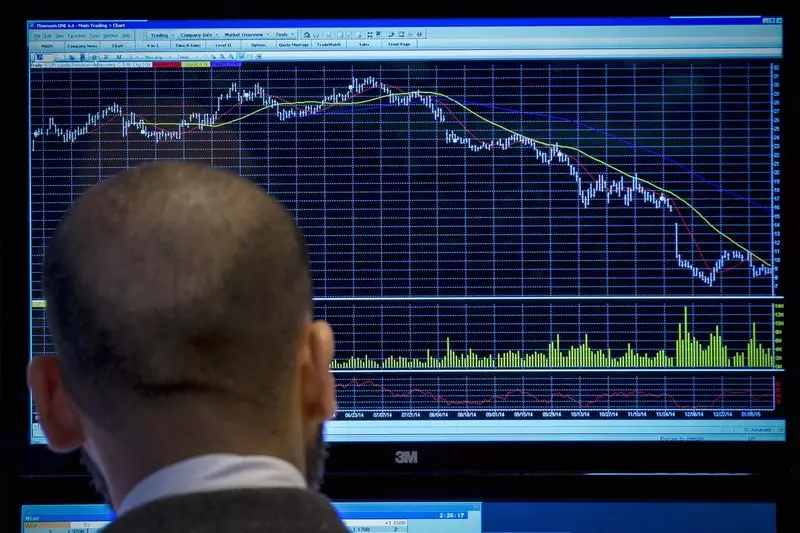Recently, Bitcoin achieved a remarkable milestone, reaching an all-time high that almost touched the $100,000 mark. This explosive rally can largely be attributed to a favorable shift in the regulatory landscape anticipated under a new administration, led by Donald Trump. The cryptocurrency has experienced a staggering increase in value this year, more than doubling since the beginning of 2023 and exhibiting a 45% surge following Trump’s electoral success on November 5. This period also coincided with the election of multiple lawmakers who are perceived as supportive of cryptocurrency, which has only compounded optimism surrounding the digital asset.
As Bitcoin neared this monumental figure, it retraced slightly, closing at around $99,383—still a notable increase of 1.33% for the day. Its trajectory continues to indicate strong momentum, with the cryptocurrency on track for its third consecutive week of double-digit gains. Furthermore, it seems poised for its best monthly performance since February, reinforcing its reputation as one of the prominent assets emerging from the “Trump trades” phenomenon that categorizes investments likely to benefit from the Republican administration’s policies.
Over the past 16 years, Bitcoin has not only survived but has also gained legitimacy within the financial community. As Shane Oliver, chief economist at AMP, noted, the longer the crypto remains in the market, the more seriously it is taken by institutional investors and economists alike. The integration of Bitcoin into mainstream financial systems is evolving, particularly as policymakers and business leaders increasingly recognize its potential. However, valuation remains a contentious point—Oliver admits that determining a precise value for Bitcoin is challenging and largely speculative.
With the momentum favoring Bitcoin, especially in light of a new regulatory environment, experienced investors are beginning to take more significant positions in this digital asset. Trump’s campaign declarations about recognizing the United States as the “crypto capital of the planet” and intentions to amass a national stockpile of Bitcoin have fueled excitement among stakeholders.
The anticipated departure of SEC Chair Gary Gensler and the incoming Trump administration signal a potential decrease in the scrutiny directed toward the cryptocurrency ecosystem. Gensler’s leadership has seen the SEC intensifying its regulatory approach, recently filing lawsuits against a number of cryptocurrency exchanges for failure to comply with registration requirements—moves that have faced considerable pushback in the courts.
The situation took a turn with the approval of U.S.-listed Bitcoin exchange-traded funds (ETFs) earlier this year. This regulatory breakthrough has spurred inflows exceeding $4 billion into these funds, as investors, both retail and institutional, sought to seize opportunities in the burgeoning crypto landscape. The growing acceptance of Bitcoin within traditional financial institutions is a critical aspect of its journey toward mainstream legitimacy.
While Bitcoin’s current trajectory has made it a darling of speculators and traders alike, it is essential to factor in the potential volatility of this digital asset. Although prices have surged recently, the market remains susceptible to external shifts, including regulatory changes and macroeconomic factors that could influence investor sentiment.
Institutional Involvement and Market Dynamics
On the ground, companies like MicroStrategy—known for its aggressive Bitcoin acquisition strategy—are capitalizing on the upward trend, with stocks sharply rising in tandem with Bitcoin’s price hike. This flexibility and responsiveness within the corporate landscape underline the shifting dynamics of traditional investment strategies that increasingly embrace digital assets.
Bitcoin’s new record highs illustrate a significant evolution within cryptocurrency markets driven by optimistic regulatory developments and heightened institutional interest. As it stands, the prospect of Bitcoin achieving sustained growth and mainstream acceptance continues to look promising, provided inherent risks and market volatility can be skillfully managed. The unfolding narrative of Bitcoin is one of continual transformation, challenging our understanding of finance, investment, and the future of currencies in a digitized world.

